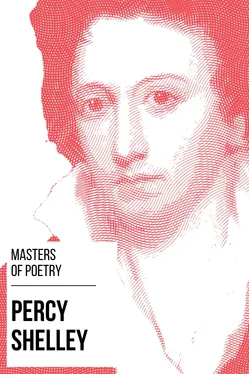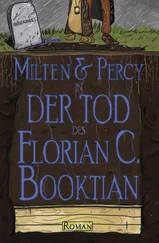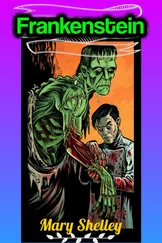Shelley did not proceed secretly. He summoned Harriet, who had not thought of such serious results of her action, to London, and told her what he was going to do. She did not consent to the separation, nor does she seem to have regarded it as final. Shelley had a settlement made for her by the lawyers, provided credit for her, and two weeks after the interview left England with Mary. He wrote to Harriet on the journey, assured her of his affection and his care for her, and indulged a plan that she should live near them, which is, perhaps, the most surprising instance of Shelley's purity of mind, and of the unworldliness or unreality, as one chooses to call it, of his conception of how human life might be lived. On his return he saw her, and agreed to leave the children with her; and when his allowance was fixed at a thousand pounds, he gave orders to honor her drafts for two hundred pounds annually. She had an equal amount from her own family, which had been paid since the beginning of their married life. When Shelley left England the second time, she was thus provided for, one would think, sufficiently. On his return he lost sight of her, and was anxiously inquiring for her, when the news of her suicide reached him. She had put the children, of whom the eldest was three years old, out to board, at a time when he was ill; she had not been permitted to see her father; but the circumstances immediately surrounding her death are not known. Shelley, though he bore his share of natural sorrow for the death of one to whom he had been tenderly attached, did not hold himself guilty of any wrong.
It is no wonder that in the last few years of his life Shelley would not talk of his earlier days, and had a kind of shame in remembering in what ruin his hopes and purposes and the enthusiasm of his youth had fallen; he felt it as an indignity to the nobleness of spirit which, in spite of all his failures, he knew had been his throughout. As we see those years, it is only for himself that we prize them; and it is a pleasure to be enabled to look on them free from that saddening retrospect of his own mind, and observe how natural and simple he really was. No one has ever had the days of his youth so laid open to the common gaze, and this is one charm of his personality, that we know him as a brother or a friend. The pages afford many happy anecdotes; but one can linger here only to mark the constant playfulness of Shelley, which was a bright element in his earlier career and not altogether absent in his Italian life. The passion for floating paper-boats, which he indulged unweariedly, is well known; but at all times he was ready for sport, and could even trifle with his dearest plans, as in the flotilla of bottles and aerial navy of fire-balloons, all loaded with revolutionary pamphlets, which he sent forth on the Devonshire coast. His running about the little garden, hand in hand with Harriet; his impersonating fabulous monsters with Leigh Hunt's children, who begged him "not to do the horn;" and his favorite sport with his little temporarily adopted Marlow girl, of placing her on the dining-table, and rushing with it across the long room, are instances that readily recur to mind, and illustrate the gayety and high spirits which really belonged to him, and which perhaps the Serchio last knew when it bore him and his boat on his summer-day voyages. This side of his nature ought to be remembered, as well as that "occasionally fiery, resentful, and indignant" quality which Godwin observed, and the intense and restless practicality of the impatient reformer, when one thinks of Shelley (as he has been too often represented) as only a morbid, sensitive, idealizing poet, of a rather feminine spirit. That portrait of him is untruthful, for he was of a most masculine, active, and naturally joyful nature.
After he left England for the last time, and took up his abode in Italy, principally, it would seem, because of the social reproach and public stigma under which he lived, and by which he felt deeply wronged, he was not really much more fortunate in his company. The immediate reason for the journey was to take Byron's natural daughter, Allegra, to her father at Venice; the mother, Miss Clairmont, went with them, and, as it turned out, continued to be a member of Shelley's family, as she had been since his union with Mary. It is now known that the Shelleys were ignorant of the liaison , both when it began in London, and afterward when they first met Byron at Geneva; but Shelley had a warm affection for Miss Clairmont, whose friendlessness appealed to his sympathy, and he spent much time in Italy in trying to make Byron do his duty toward Allegra, and to soften the ill-nature of her parents toward each other. Byron's conduct in this matter was a powerful element in generating in Shelley that thorough contempt he expressed for the former as a man. But though Shelley's most winning qualities are to be observed, and his tact was conspicuously called forth by their negotiations in regard to the child, yet the connection with Miss Clairmont was unfortunate. That it repeatedly drew scandal upon him was a minor matter; it was of more consequence that in his family she was a disturbing element, and Mary, who had disliked to have her as an inmate almost from the first, finally insisted on her withdrawal, but not until frequent disagreements had sadly marred the peace of Shelley's home. Mary, indeed, was not perfect, any more than other very young wives; and by her jealousies, and yet more, it seems, by her attempts to make Shelley conform to the world, especially in the last year or two, she tried and harassed him; and so it came about that his love took the form of tenderness for her welfare and feelings, and often of despondency for himself. Miss Clairmont was a source of continual trouble for him in many ways: she was of an unhappy temperament and hard to live with; but with his long-enduring and charitable disposition, and his extraordinary tenacity in attachment, and perfect readiness to admit the least obligation upon him, proceeding from any one in trouble, he never wavered in his devotion to her interests and care for her happiness. It is a curious fact that Miss Clairmont, who lived to be very old, manipulated the written records of this portion of her life, so that her evidence is of very questionable worth, though better, one hopes, than that of her mother, the second Mrs. Godwin, whose lying about the Shelleys was of the most wholesale and conscienceless kind.
As with Miss Clairmont, so in a less degree with others of the Italian circle. But enough has been said of the character of the people whom Shelley knew. It cannot be that they cut so poor a figure because of Shelley's presence, hard as the contrast of common human nature must be with him. It is observable, and it is in some sort a test, that he did not overvalue them. Hogg, Peacock, and Medwin were all deceived, if they thought he trusted them or held them closer than mere friendly acquaintances; there is no evidence that he felt for Williams or Trelawney any more than an affectionate good will; toward Leigh Hunt he had the kindest feeling of gratitude and of respect, and for Gisborne and Reveley a warm cordiality, but nothing more. Mary he loved, though with full knowledge of her weaknesses, in a manly way; for Miss Clairmont he had a true affection; and he recognized poetically a womanly attractiveness in Mrs. Williams, who seems to have represented to him the spirit of restfulness and peace, in the last months of his life. But at the end, his errors respecting men and things being swept away, his ideals removed into the eternal world, and his disillusion complete, the most abiding impression is of the loneliness in which he found himself; and remembering this, one forgets the companions he had upon his journey, and fastens attention more closely upon the man through whose genius that journey has become one of undying memory.
Читать дальше












